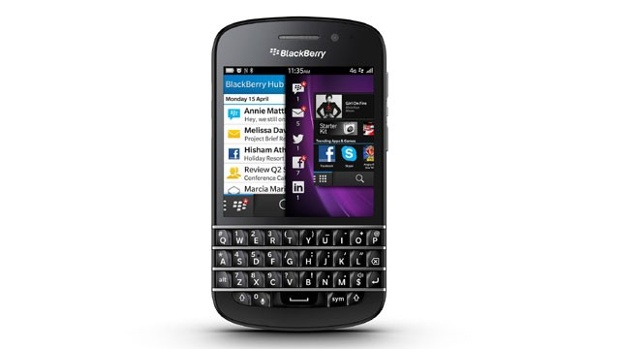-
Tips for becoming a good boxer - November 6, 2020
-
7 expert tips for making your hens night a memorable one - November 6, 2020
-
5 reasons to host your Christmas party on a cruise boat - November 6, 2020
-
What to do when you’re charged with a crime - November 6, 2020
-
Should you get one or multiple dogs? Here’s all you need to know - November 3, 2020
-
A Guide: How to Build Your Very Own Magic Mirror - February 14, 2019
-
Our Top Inspirational Baseball Stars - November 24, 2018
-
Five Tech Tools That Will Help You Turn Your Blog into a Business - November 24, 2018
-
How to Indulge on Vacation without Expanding Your Waist - November 9, 2018
-
5 Strategies for Businesses to Appeal to Today’s Increasingly Mobile-Crazed Customers - November 9, 2018
BlackBerry stops building BlackBerry Classic
According to a memo sent last week from the Senate Sergeant at Arms, Senate staff will no longer receive new BlackBerry phones due to the fact that BlackBerry had only 600 smartphone devices left and it wouldn’t be manufacturing anymore.
Advertisement
“Once we have exhausted our current in-house stock, new device procurements will be limited, while supplies last, to warranty exchanges only”, the message read.
BlackBerry Ltd (NASDAQ:BBRY) is reported to have informed AT&T and Verizon of its plans to discontinue the production of all BB 10 devices.
The memo cites the discontinued production of BlackBerry OS 10 devices as the reason for the phase out. It now focuses on phones and software for Google’s Android platform. This means that devices such as the Q10, Z10, Z30 Passport, and the Classic will not be produced by BlackBerry anymore.
Chief executive John Chen introduced the Classic after joining the company in 2013, bringing back the raised-button keyboard that BlackBerry enthusiasts loved, and which his predecessor, Thorsten Heins, let fall by the wayside with his push to full touch-screen devices.
The U.S. Senate is finally making the switch from BlackBerry to Android or iPhone, a switch most of us made years ago. Reports indicate that the company aims to release some more Android-based smartphones.
At the time, company president John Chen told an audience in NY that he had heard a clear message that consumers didn’t want the company to “mess around” with what they liked best about the company’s phones. “BlackBerry’s device strategy is based on a cross-platform model where we’ll continue to support our BlackBerry 10 platform while expanding our device offering to include Android-based devices”, stated the company. Of Course, for the senate, the support functions on the Blackberry existing devices will continue. The update is expected to be released next month, and there is also another update expected later this year.
Advertisement
Even as BlackBerry fell to about 0.2% global market share in Q1 of this year 2016, the company maintained its government contracts.




























